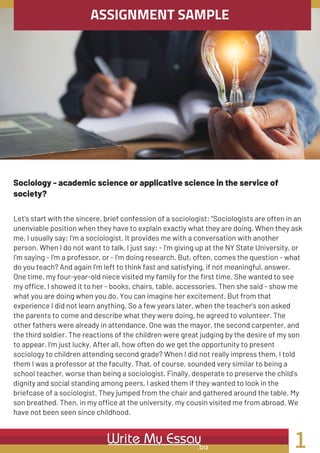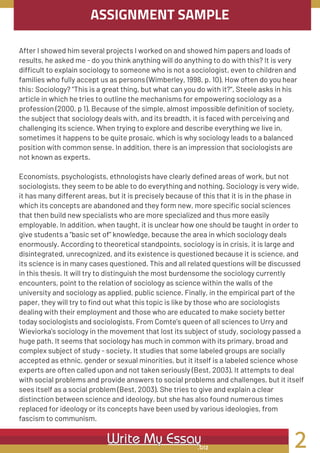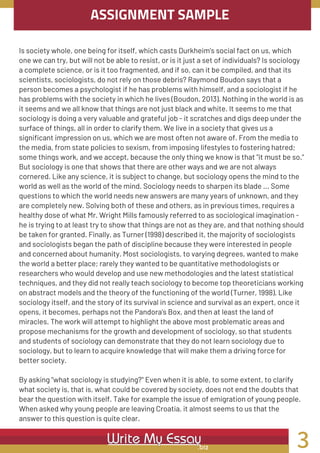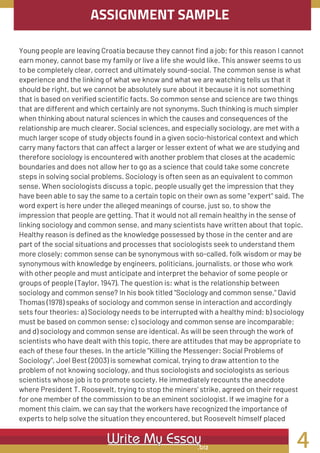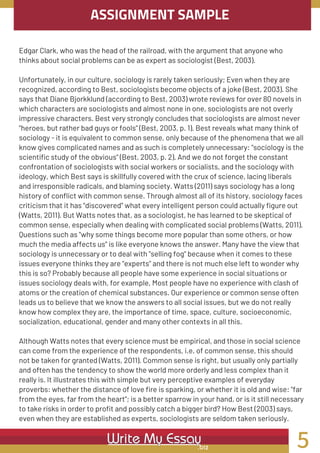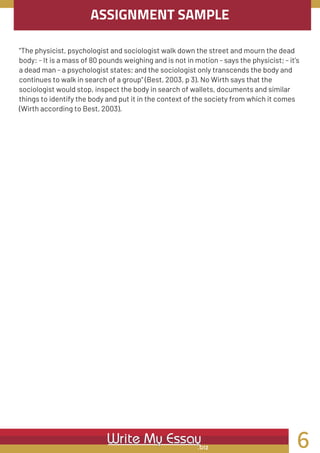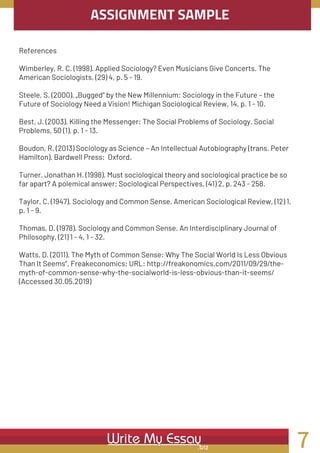The document discusses the relationship between sociology and common sense. It notes that while common sense seems to provide clear answers to social issues, sociology reveals that the social world is more complex. Sociology is often seen as equivalent to common sense and not taken seriously. However, sociology uses the scientific method and empirical evidence to develop deeper understandings of how social, cultural, economic and political factors influence human behavior and society in ways that may not be obvious. While common sense comes from personal experiences, sociology aims to study issues from multiple contexts and perspectives in order to more fully understand how and why certain social phenomena occur.
